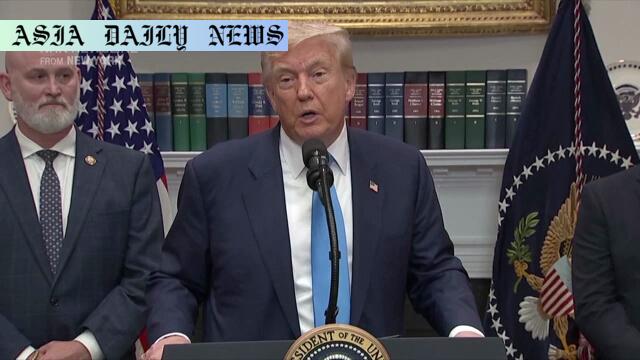Tariff – US President Donald Trump threatens India with a 25% tariff rate and penalty for purchasing Russian oil and arms.
US threatens India with a 25% tariff and penalty over Russian imports.
President Trump criticizes India’s tariffs on American products.
India aims for fair trade but firmly defends its national interests.
Global trading partners face tariff pressures as US deadlines near.

US Threatens India with Massive Tariff Penalties
The global trade environment took a contentious turn when US President Donald Trump announced a 25% tariff on Indian goods, coupled with unspecified penalties. This announcement stems from India’s continued trade relations with Russia, primarily in military equipment and energy procurement. The proposed sanctions aim to dissuade India from supporting Russian economic ventures during the ongoing Ukraine crisis. While Trump referred to India as a ‘friend,’ he emphasized that tariffs on American products by India were ‘far too high.’ The announcement is part of a broader US strategy to isolate Russia economically and push for a resolution to the Ukraine conflict.
India’s Response: Balancing National Interest and Global Trade
India’s government promptly issued a statement addressing the potential implications of Trump’s announcement. The statement underlined India’s commitment to a fair, balanced, and mutually beneficial trade agreement. However, the government also made it clear that it would take all necessary steps to protect its national interests. India’s trade relations with Russia have historical and strategic underpinnings, making this situation a complex balancing act against escalating US pressure.
US Tariff Strategy Faces Global Scrutiny
The tariff imposed on India is only one part of Washington’s broader attempt to revise trade relations with multiple countries. Trump has warned other nations of additional tariffs—ranging from 15% to 20%—if trade negotiations fail. The strategy highlights the US administration’s reliance on economic tools to pressure allies and trading partners to align with its geopolitical goals. While effective in some cases, this aggressive approach risks alienating key allies, potentially causing long-term economic and diplomatic strains.
Economic Implications and Global Trade Dynamics
The imposition of tariffs on India could have significant ramifications on the economic partnership between the two nations. India, as an emerging market, represents a substantial trade partner for the US, particularly due to its growing consumer base and industrial sector. Conversely, a tariff increase could discourage Indian exports and damage the relationship, forcing India to pivot toward other trading partners. Additionally, such measures could destabilize existing trade dynamics within Asia and beyond, undermining global economic stability at a critical juncture.
The Bigger Picture: US, India, and Russia’s Influence
India’s relationship with Russia, particularly in the defense and energy sectors, plays a crucial role in its foreign policy. Attempts to reduce India’s reliance on Russian imports involve strategic risks and deeper economic considerations. The US administration’s move also reflects its growing frustration with nations attempting to maintain neutrality or economic ties with Russia amid the Ukrainian conflict. However, this situation raises broader questions about the balance of power in international relations, as well as how major economies like India navigate between competing global pressures.



Commentary
Balancing Diplomacy and National Interests
The recent decision by the US to propose a 25% tariff on Indian imports highlights the complex interplay between diplomacy and economic policy. While the US frames its move as part of a broader strategy to isolate Russia economically, it inadvertently places India in a challenging position. India’s trade relations with Russia are rooted in decades of strategic partnership and economic benefit, which cannot be easily dismantled without significant domestic repercussions.
Testing the Strength of US-India Relations
Though President Trump referred to India as a ‘friend,’ the proposed tariffs and penalties inevitably strain relations between the two nations. India has emerged as a critical ally for the US in containing China’s rise and maintaining stability in the Indo-Pacific region. Given this strategic importance, imposing economic sanctions may seem counterproductive from a geopolitical perspective. The situation underscores the delicate balancing act required in managing bilateral relations in a competitive global landscape.
Long-term Ramifications on Global Trade
Beyond the immediate fallout, the US decision to impose tariffs on a significant partner like India sets a concerning precedent. It signals a willingness to use economic sanctions not just against adversaries but also key allies, should they deviate from Washington’s preferred policies. This approach could encourage other nations to strengthen their economic ties with alternative global powers, such as China or Russia, creating parallel markets and reducing America’s global influence. Ultimately, this tactic risks undermining the cooperative spirit required to address complex global challenges such as climate change, economic inequality, and security threats.